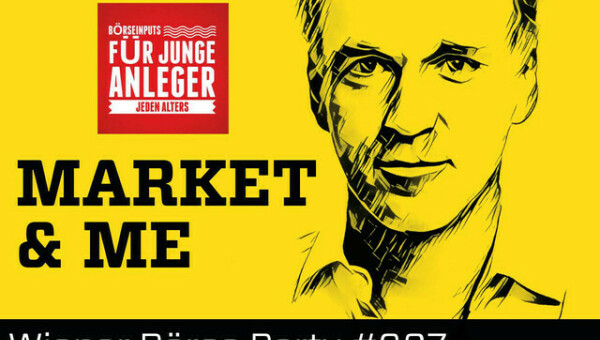Deloitte sagt, was bei der FTT schiefgelaufen ist und bringt Inputs (englisch)
09.06.2013, 18121 Zeichen
Critical press coverage
It has been widely reported in the media in the last days that the proposed scope of the FTT is set to be scaled back, initially only applying to in-scope share transactions at a rate of 0.01% (lower than current proposed rate of 0.1%) with other transactions (e.g. bonds, derivatives, repos) being brought within the FTT charge at a later date, if at all. If this is the case, then the initial impact of the FTT will be felt most in capital markets equities trading, as well as having an impact on M&A transactions and group reorganisations.
The source of the reports in the media appears to be anonymous quotes given by EU officials to a news agency. The officials are quoted as saying – “It is not going to survive in its current form.” and “You can introduce it on a staggered basis... We start with the lowest rate of tax (0.01 percent) and increase it bit by bit."
A spokeswoman for the European Commission in charge of tax policy is also quoted as saying to the news agency –
“Depending on the speed of progress from here, it is still feasible that the common FTT could be implemented in 2014, although January 2014 is looking less likely."
There has been no official press release from the Taxation and Customs Union office of the European Commission. However, the quotes along with the increased negative media coverage over the last few weeks appear to be softening the ground for a retreat from the FTT coming into force in its current full form on the proposed start date 1 January 2014. This implementation date had appeared ambitious given each participating Member State is expected to adopt and publish the necessary local laws to implement the FTT by 30 September 2013 per the draft FTT Directive.
Whilst, the media reports suggest there may be changes to the proposed FTT in its current form, we would note the following: here.
-
Even if the FTT rate is reduced, the financial services sector would still incur the costs of collecting the tax and reporting chargeable financial transactions.
-
If the approved final FTT still applies on a residence basis (where the parties are established or deemed to be established in the FTT Zone) and issuance basis (where the securities are issued in the FTT Zone), the scope of the tax will still be broader than the UK’s stamp duty reserve tax and the existing French and Italian FTTs.
Given the increasingly critical press coverage of the FTT in its current form, it appears more likely that the EU will give further thought to the scope, form and implementation dates of FTT.
Discussions on a political level and lobbying activities
Following the UK Government's legal challenge against the use of the enhanced cooperation procedure to introduce FTT, the Prime Minister David Cameron has again publicly criticised the FTT, referring to it as "counterproductive". Mr Cameron reiterated the UK's opposition to a FTT, unless introduced on a global basis. Although Luxembourg has not itself made a legal challenge, the Luxembourg Finance Minister Luc Frieden, publicly expressed support for the UK's legal challenge, citing concerns about the impact the FTT would have outside the FTT zone. These comments follow those of the German Finance Minister, Wolfgang Schauble, who stated he did not expect a swift introduction of the tax in most of the participating Member States, and that the situation was "complicated".
While discussions continue on a political level, the financial services industry continues to lobby against the tax. Recent examples of such lobbying include:
-
Italy's Assogestioni (Asset Management Association) has written to Italian Finance Minister, Fabrizio Saccomanni, saying it is "extremely worried" about the impact the FTT would have on the domestic financial services industry. The letter was co-signed by ABI (Italian Banking Association), ANIA (Italian Insurance Association) and other associations.
-
The British Bankers' Association has written to Mervyn King, the Governor of the Bank of England, to express concern about the FTT. It argues that the FTT proposals have "the potential to disrupt significantly the capital markets and the transmission of liquidity wihch support the real economy".
-
Alfi (Luxembourg's fund industry body) also recently criticised the FTT calling it "unacceptable" and "undesirable" in its present form.
Siemens and Bayer, two major German companies, have estimated the impact of FTT on their respective businesses to be between €70m - €100m and €15m - €45m annually. These estimates are significant as they illustrate how the FTT could have a major impact on non-financial services corporate groups.
We will of course keep you updated with developments in this area through our regular FTT newsletters.
Non-paper issued by the Taxud
Irrespective of ongoing discussions, the Directorate General for Taxation and Customs Union (“Taxud"), a department of the European Commission (the "Commission") issued responses to questions tabled by the 11 participating member states.
Taxud’s response was issued on 22 May 2013 in the form of a “non-paper”. This means it is for discussion and illustrative purposes only and states on its face that it does not have legal status. here.
1. The role of the “market infrastructure operators” could be expanded. While Taxud emphasises that it is for the member states within the FTT zone to set their own collection and payment mechanisms, it does speculate about the role market infrastructure operators could play. It mentions that an obligation could potentially be put on such institutions to charge and pay the FTT. There is speculation that such operators could enter into contractual arrangements with the member states to become “certified” and agree to collect and pay the FTT.
2. Compliance with the FTT is based on the joint and several liability provisions. It is emphasised that the joint and several liability provisions extend to:
-
trading platforms;
-
clearing houses;
-
central counter parties;
-
central securities depositaries; and
-
international central securities depositaries.
Compliance within the FTT zone, should lead to the compliance outside the FTT zone as it would be the best “business case” of institutions within the FTT zone to transact only with FTT compliant non FTT zone counterparties. Taxud speculates that FTT zone financial institutions may not be inclined to transact on trading venues outside the FTT zone which are not certified as FTT compliant.
Critical press coverage
It has been widely reported in the media in the last days that the proposed scope of the FTT is set to be scaled back, initially only applying to in-scope share transactions at a rate of 0.01% (lower than current proposed rate of 0.1%) with other transactions (e.g. bonds, derivatives, repos) being brought within the FTT charge at a later date, if at all. If this is the case, then the initial impact of the FTT will be felt most in capital markets equities trading, as well as having an impact on M&A transactions and group reorganisations.
The source of the reports in the media appears to be anonymous quotes given by EU officials to a news agency. The officials are quoted as saying – “It is not going to survive in its current form.” and “You can introduce it on a staggered basis... We start with the lowest rate of tax (0.01 percent) and increase it bit by bit."
A spokeswoman for the European Commission in charge of tax policy is also quoted as saying to the news agency –
“Depending on the speed of progress from here, it is still feasible that the common FTT could be implemented in 2014, although January 2014 is looking less likely."
There has been no official press release from the Taxation and Customs Union office of the European Commission. However, the quotes along with the increased negative media coverage over the last few weeks appear to be softening the ground for a retreat from the FTT coming into force in its current full form on the proposed start date 1 January 2014. This implementation date had appeared ambitious given each participating Member State is expected to adopt and publish the necessary local laws to implement the FTT by 30 September 2013 per the draft FTT Directive.
Whilst, the media reports suggest there may be changes to the proposed FTT in its current form, we would note the following: here.
-
Even if the FTT rate is reduced, the financial services sector would still incur the costs of collecting the tax and reporting chargeable financial transactions.
-
If the approved final FTT still applies on a residence basis (where the parties are established or deemed to be established in the FTT Zone) and issuance basis (where the securities are issued in the FTT Zone), the scope of the tax will still be broader than the UK’s stamp duty reserve tax and the existing French and Italian FTTs.
Given the increasingly critical press coverage of the FTT in its current form, it appears more likely that the EU will give further thought to the scope, form and implementation dates of FTT.
Discussions on a political level and lobbying activities
Following the UK Government's legal challenge against the use of the enhanced cooperation procedure to introduce FTT, the Prime Minister David Cameron has again publicly criticised the FTT, referring to it as "counterproductive". Mr Cameron reiterated the UK's opposition to a FTT, unless introduced on a global basis. Although Luxembourg has not itself made a legal challenge, the Luxembourg Finance Minister Luc Frieden, publicly expressed support for the UK's legal challenge, citing concerns about the impact the FTT would have outside the FTT zone. These comments follow those of the German Finance Minister, Wolfgang Schauble, who stated he did not expect a swift introduction of the tax in most of the participating Member States, and that the situation was "complicated".
While discussions continue on a political level, the financial services industry continues to lobby against the tax. Recent examples of such lobbying include:
-
Italy's Assogestioni (Asset Management Association) has written to Italian Finance Minister, Fabrizio Saccomanni, saying it is "extremely worried" about the impact the FTT would have on the domestic financial services industry. The letter was co-signed by ABI (Italian Banking Association), ANIA (Italian Insurance Association) and other associations.
-
The British Bankers' Association has written to Mervyn King, the Governor of the Bank of England, to express concern about the FTT. It argues that the FTT proposals have "the potential to disrupt significantly the capital markets and the transmission of liquidity wihch support the real economy".
-
Alfi (Luxembourg's fund industry body) also recently criticised the FTT calling it "unacceptable" and "undesirable" in its present form.
Siemens and Bayer, two major German companies, have estimated the impact of FTT on their respective businesses to be between €70m - €100m and €15m - €45m annually. These estimates are significant as they illustrate how the FTT could have a major impact on non-financial services corporate groups.
We will of course keep you updated with developments in this area through our regular FTT newsletters.
Non-paper issued by the Taxud
Irrespective of ongoing discussions, the Directorate General for Taxation and Customs Union (“Taxud"), a department of the European Commission (the "Commission") issued responses to questions tabled by the 11 participating member states.
Taxud’s response was issued on 22 May 2013 in the form of a “non-paper”. This means it is for discussion and illustrative purposes only and states on its face that it does not have legal status. here.
1. The role of the “market infrastructure operators” could be expanded. While Taxud emphasises that it is for the member states within the FTT zone to set their own collection and payment mechanisms, it does speculate about the role market infrastructure operators could play. It mentions that an obligation could potentially be put on such institutions to charge and pay the FTT. There is speculation that such operators could enter into contractual arrangements with the member states to become “certified” and agree to collect and pay the FTT.
2. Compliance with the FTT is based on the joint and several liability provisions. It is emphasised that the joint and several liability provisions extend to:
-
trading platforms;
-
clearing houses;
-
central counter parties;
-
central securities depositaries; and
-
international central securities depositaries.
Compliance within the FTT zone, should lead to the compliance outside the FTT zone as it would be the best “business case” of institutions within the FTT zone to transact only with FTT compliant non FTT zone counterparties. Taxud speculates that FTT zone financial institutions may not be inclined to transact on trading venues outside the FTT zone which are not certified as FTT compliant.
3. Issuance principle could take precedence over residency principle. Taxud makes a case for the residency principle being the main basis of charging FTT and FTT being paid to the tax authorities of the FTT zone countries in which the financial institutions are based (or are deemed to be based). However, it acknowledges that Member States may prefer to reverse the charging criteria so that, for example, all FTT arising from trades in German government bonds accrues to Germany. If adopted, this could potentially be seen as the first step towards a more issuer-based FTT.
4. Pension funds are to be treated as on an equal footing as other asset managers. Taxud’s view is that persons investing in pension funds already enjoy, in many cases, beneficial treatment (e.g. tax deductible investments). Taxud’s response also notes that private households investing in government bonds do not benefit from tax deductions from any investments made in shares or bonds. As such it maintains the pension funds therefore should be within the scope of FTT and notes “additional privileged treatment of [pension funds] would risk to trigger distortions across markets and actors instead of correcting market failures”. Notably Taxud states that the definition of “pension fund” would cover any funded pension scheme (as well as pension fund investment managers).
The lack of exemption remains a controversial issue and is likely to be the subject of continual discussions. The Netherlands in particular has voiced strong opposition to the current status of pension funds.
5. Double taxation is acknowledged as an issue. It is noted that territories which levy their own transaction taxes and which are major financial centres (China, Hong Kong, Luxembourg, Singapore, Switzerland and the UK are mentioned by name) could potentially have double taxation issues. For example a Canadian pension fund purchasing UK shares from a US branch of a French bank would be subject to UK stamp duty reserve tax and FTT. However no exemption from FTT is proposed. Rather, it is simply stated that agreements would be required between FTT zone and non FTT zone territories, which would presumably require either the national transaction tax or the FTT to be disapplied or for the tax to be shared. Such treaties, in Taxud’s view, should also include administrative co-operation provisions and automatic information exchange, and could be on a bilateral or multilateral basis. Negotiating such agreements can be a lengthy process and may mean that there is an interim period where a financial institution could be subject to double taxation. Existing double tax treaties do not typically deal adequately with such instances of double taxation (e.g. the provisions of the France – US treaty have led to discussions around whether French FTT is within scope of that agreement).
6. Repos could be taxed as derivatives rather than a sale and purchase of securities. Taxud considers that the repo market ought not to be adversely impacted by the FTT where the securities are pledged and even otherwise, and notes that repos involving outright transfers of securities should be taxed as one transaction only rather than two. However, if this is not a commercially viable alternative, it suggests that repos effected by outright transfer of securities could potentially be taxed at the derivative rate of a minimum of 0.01% of the notional value. The thinking here seem to be that the collateral is posted as a hedge to counterparty default risk and so is in effect akin to a credit default swap.
7. High frequency trading (“HFT”). Taxud does not consider a specific FTT charge to be required in relation to HFT activities. Trades (including modified or cancelled trades) would be subject to FTT if they relate to securities issued in the FTT zone or with FTT zone counterparties. The frequency of trades and the fact that the FTT would be likely to wipe out the profits on each trade may mean that HFT ceases to be “economically meaningful”.
8. Variable FTT charges for bonds. Taxud dismisses the idea that the rate of FTT could be varied depending upon the maturity of bonds (so a bond with a 6 month maturity could be taxed at an FTT rate of 0.05% whereas a bond with a maturity of one year could be taxed at 0.1%). In Taxud’s view the rate of FTT should be uniform irrespective of the maturity of the instrument.
9. Financial institutions could be issued with a FTT specific identification number. As part of compliance with the tax it is suggested that Financial Institutions could be issued with a FTT registration number which would be used for the identification of counterparties and on any FTT returns that would be required to be made.
10. A FTT committee may be established. Taxud envisages that a FTT committee may be established in order to deal in depth with specific points arising from the FTT and to consider practical implementation. The Committee would be made up of representatives from the participating member states and chaired by a representative from the commission. Although Taxud states that this would be without prejudice to the non-participating member states, there would not be any representation on the committee from outside the FTT zone.
Was noch interessant sein dürfte:





Link-Mix vor Marktstart, 10.6.: ams, Lloyds, SAP, Daimler, Hans Huber

Wiener Börse Party #638: I wer narrisch bei Palfinger und VIG, Gratulation an Mike Lielacher und ein Bundesschätze-Wunsch
Bildnachweis
Aktien auf dem Radar:Immofinanz, Polytec Group, Marinomed Biotech, Flughafen Wien, Warimpex, Lenzing, AT&S, Strabag, Uniqa, Wienerberger, Pierer Mobility, ATX, ATX TR, VIG, Andritz, Erste Group, Semperit, Cleen Energy, Österreichische Post, Stadlauer Malzfabrik AG, Addiko Bank, Oberbank AG Stamm, Agrana, Amag, CA Immo, EVN, Kapsch TrafficCom, OMV, Telekom Austria, Siemens Energy, Intel.
Random Partner
Palfinger
Palfinger zählt zu den international führenden Herstellern innovativer Hebe-Lösungen, die auf Nutzfahrzeugen und im maritimen Bereich zum Einsatz kommen. Der Konzern verfügt über 5.000 Vertriebs- und Servicestützpunkte in über 130 Ländern in Europa, Nord- und Südamerika sowie Asien.
>> Besuchen Sie 68 weitere Partner auf boerse-social.com/partner
Useletter
Die Useletter "Morning Xpresso" und "Evening Xtrakt" heben sich deutlich von den gängigen Newslettern ab.
Beispiele ansehen bzw. kostenfrei anmelden. Wichtige Börse-Infos garantiert.
Newsletter abonnieren
Runplugged
Infos über neue Financial Literacy Audio Files für die Runplugged App
(kostenfrei downloaden über http://runplugged.com/spreadit)
per Newsletter erhalten
| AT0000A39UT1 | |
| AT0000A2U2W8 | |
| AT0000A2K9L8 |
- wikifolio Champion per ..: Jörn Remus mit Nordstern
- Börse-Inputs auf Spotify zu u.a. Invest Stuttgart...
- ATX charttechnisch: Index vor drittem Anlauf
- Fazits zu Polytec, Agrana, AMAG, Strabag, Palfinger
- Fear of missing out und Buying the Dip bei wikifo...
- Wie Delivery Hero, publity, Pantaflix, Schaeffler...
Featured Partner Video

Wiener Börse Party #637: Egalite Addiko und Marinomed, AT&S nach 2 Monaten zurück, 19 Jahre RBI an der Börse, Strabag top
Die Wiener Börse Party ist ein Podcastprojekt für Audio-CD.at von Christian Drastil Comm.. Unter dem Motto „Market & Me“ berichtet Christian Drastil über das Tagesgeschehen an der Wiener Börse....
Books josefchladek.com

NA4JOPM8
2021
ist publishing

Index Naturae
2023
Skinnerboox

I’ll Bet the Devil My Head
2023
Void

La Scène de la Locomotive à Vapeur
1975
Yomiuri Shimbun

Spurensuche 2023
2023
Self published




 Ach, wie schön wäre es, wenn Faymann / Spindelegger mal mit ihren Dienstfahrzeugen bei der Börse vorbeischauen würden ...
Ach, wie schön wäre es, wenn Faymann / Spindelegger mal mit ihren Dienstfahrzeugen bei der Börse vorbeischauen würden ...

 Ros Boisier
Ros Boisier Sebastián Bruno
Sebastián Bruno Robert Frank
Robert Frank Kurama
Kurama Vladyslav Krasnoshchok
Vladyslav Krasnoshchok